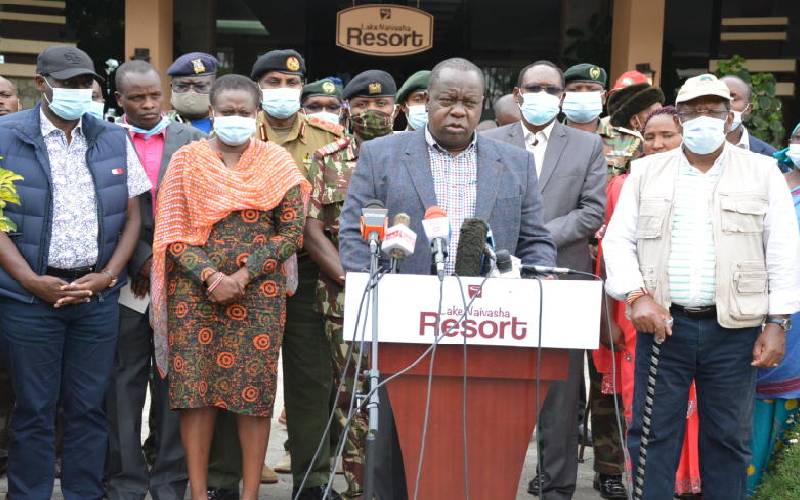×
The Standard e-Paper
Kenya’s Boldest Voice

Interior Cabinet Secretary Fred Matiang’i addresses the Press after a meeting with CSs Charles Keter (Energy), Faridah Karoney, (Lands) and Tobiko Keriako (Environment) and other stakeholders on the perennial land clashes in Eastern Mau at Lake Naivasha Resort, yesterday. [Antony Gitonga, Standard]
The government has announced plans to resettle about 40,000 families evicted to reclaim 57,000 acres of Eastern Mau forest.